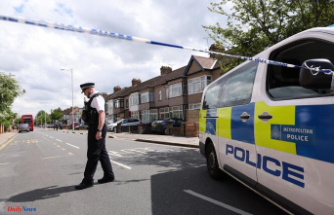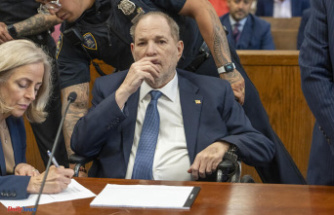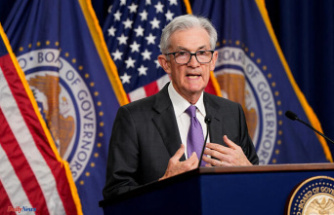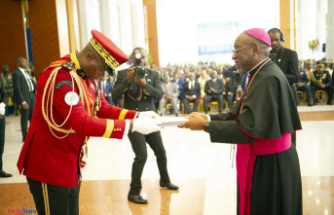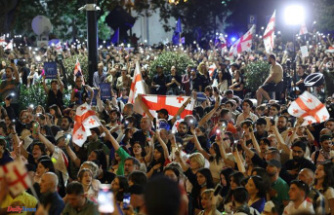"The sanctions were never exemplary and we have overcome the point of no return, will come a time when the professional football league should intervene with a punch on the table, because it is never too late to address the problems." Pablo Correa, the foreign technician with more parties in the history of Ligue 1, still live in Nancy, in the heart of the Lorena region, from where he serves the world. In the tone of it, a certain perplexity is perceived. Only a few hours have passed since the Discipline Committee of the LFP punishes "preventively" to the Olympique de Lyon with a closed-door match after the incidents last Saturday against the Olympique de Marseille. And even less since the ultra of 32 years who threw a bottle against Dimitri Payet was sentenced to six months in prison and five years without being able to access Lyon Stadium Groupama. However, Correa still does not come out of her stupor. At 54, with more than 600 games of experience in the two maximum categories of French football, Uruguayan considers that the "lack of courage of LFP, lack of attention, its effort into emphasizing that it is always about sporadic cases "They are the factors that have brought us here. "Do not forget that LFP is directed by teams themselves. There are many interests at stake," he adds.
Tuesday, shortly after the sentence of the fan, these presidents referred to in Paris with the Interior Minister, Gérald Darmanin and the Minister of Sports, Roxana Maracineanu. It was the umpteenth summit in a country that presumes, since 2016, of a law with which the relationship between the high instances and fans are regulated. An ambitious text, although insufficient when it comes to eradicating, once and for all, the stigma of violence. The Sociologist Patrick Mignon, professor at the School of Social Sciences in Paris (EHESS), has been dealing with the origins of this scourge. "There is a mixture of social and political reasons, to which the peculiarities of our sports organizations must be addressed, among the most important causes, the crisis of trust towards institutions and elites, the loss of influence of political parties should be highlighted. and socioeconomic uncertainty, "says this newspaper the author of the Violence Dans Les Stades: Supporters, Ultras et Hooligans (INSEP, 1995).
"The current situation is the result of the inability to really address the problem and to define the responsibilities of the State and LFP. We have suffered a worsening of tensions, without being able to implement a long-range policy," Mignon adds. According to the official figures of the Federation (FFF), published annually by the National Crime Observatory and criminal responses (ONDRP), the level of violence in French amateur football is similar to that of other neighboring countries. However, the data relating to professionalism is wrapped in the mist. "It is very difficult to get something precise, because the LFP elaborates studies, but does not make them public,, since 2009, the Ministry of the Interior has a specific police division for the fight against ultra violence and elaborates annual reports, although it is also almost impossible Access them, "says Ludovic Lestrelin, doctor in sport science and researcher at the University of Caen.
This newspaper has tried to contrast the version of the LFP and that of its president, Vincent Labrune. However, the organism reiterates its intention not to give any data to light and warns that after its recent interview with L'Equipe, Labrune will not appear again before the media. This stealthy caution contrasts, every week, with the resounding fragor of the stadiums. In January, Commando Ultra 84 burst into the sports city of Marseille with firecrackers and flares, causing minor injuries to his defense Álvaro González. It was only the prologue, because after more than 15 months of pandemic and closed-door matches, the return to the stands would be as catastrophic as expected. At the beginning of August, the Radicals of the Montpellier provoked the momentary suspension of the mourning against Marseille after throwing a bottle that hit Valentin Rongier's mouth. A month later, the Derby Du Nord between Lens and Lille must have been arrested for an hour for the upgrades.
Paradoxically, since last March 12, the Instance Nationale du SupportéRisme, the group where they work, jointly, the ministries of indoor and sports, the FFF, the LFP, a group of sociologists and the groups of amateurs, not even He has sat down on the same table. "It is urgent that they meet again to see how this wave of violence can be contained, it is a pity that we ruin the work of several years to return to mere repression," reveals Adrien Verrecchia, one of the authrars of Ultra, Mode de Vie (The Grint, 2017), 530-page start-up trip with departure at the Velodrome Marsellés, cradle of the Ultra movement, and goal in Paris, with the remembered Expulsion of Virage Auteuil and Kop of Boulogne, the two historical Rivan factions of the PSG.
The discussion of ideas in favor of economic interests has been banished.
That negotiation led by Qatar's royal family led to the return of the ultras to the prince's park. Today, a decade later, both continue to reveal their muscle through the suffocating smoke from their flares. In light of these facts, the most spiny of the questions should be addressed: Should a letter be given to the dialogue with the violent?
"Of course, the fan lives and suffers from the club, but I do not see with good eyes negotiating in the middle of, with 40,000 people in the stands, it is a phenomenon that comes from far: to give the swollen an importance that does not belong to him", Apostille Correa, which during its two stages in Nancy (2002-2011 and 2013-2017) had to deal with the famous Saturday FC, installed in the Piantoni tribune of Stade Marcel Picot. "It is not worth that speech of 'I take an entry and I have the right to everything'. In a democratic society and more and more open there are rights and duties. I do not want to stay with those people who think it only has rights," the Uruguayan.
Vercchia, against, is firmly shown partly from the negotiated road. "At the head of the ultras not only disturbed, but people with whom you can discuss, the problem is that the dialogue is totally broken in some clubs. Of course, the repressive measures are necessary, but some are completely useless, like the parties At the door closed, "adds the author of Ultra, Mode de Vie, where Bastien Pouple and Benoit Taix also participated, reviewing other simpler solutions, a priori. "Last August, in Nice, would have enough that the bars of the stadiums sold the bottles of water without cap. Now they will reinforce the fences that avoid the invasion of the grass. In France we have modern stadiums and we are able to identify through Cameras to those responsible. That is why I do not understand why we penalize entire stadiums for the behavior of a few, "concludes Verrecchia.
In this crossroad, in the middle of a spiral of violence that the partner with Serbia, Russia or Poland, where the Ultras Campan for its respects, France has to choose a path. "The pandemic sharpened a perverse process: banish the debate of ideas and the work of with fans in favor of the economic interests of LFP," Mignon says. After more than three decades of research, the author of the Passion du Football (Odile Jacob, 1998) maintains an idea for which he does not admit replica: "Even today, the French State is still in charge of football, so it must take the initiative ".
French society always tied to divergence, although in recent years everything has been degraded.
In his view, the republican political and social elites always "suspected" professional sports for their propensity to betray "the values of the fair play". "Now we have to rethink the model: clubs have to prevent violence by acting in their local environment, without forgetting the economic model, which should be oriented to greater realism," complete Mignon. "We have not been able to assume the increase, even if it was modest compared to England or Spain, of the popularity of this sport and its economic changes, football seemed in a happy environment when it was reduced to small cities, with its players and sponsors Premises, but it became something much more difficult to administer since the 1970s, when it managed to become popular in large cities, in a context of social discomfort, "says the acclaimed sociologist.
Half a century later, the restlessness of which Mignon speaks seems to have channeled into the movement of the yellow vests or in the most recent manifestations against the Covid passport. "French society always tied to divergence, although in recent years everything has degraded and there is no protest that ended peacefully, if violence is not exercised, it seems that there is no demonstration of force. Football, unfortunately, He does nothing but copy this phenomenon in some way, "says Correa, resident in the country since 1995.
The climate of polarization is recruited, as in the rest of the Western world, by the progress of the extreme right. While Eric Zemmour and Marine Le Pen challenge the model of Emmanuel Macron without complexes, some groups amplify their hate messages from the funds of the stadiums. In March 2018, UEFA accused Lyon's ultras of deploying Nazi symbols on the stands and agreed to a black man. And last year, the Government identified the leaders of Ultras Populaire Sud, the most radical group of Nice, as part of Génération Iditaire, a paramilitary militia that had played immigrants in the vicinity of the border with Italy.
"Bad Gones maintains close ties with Ultra Sur and Lyon 1950, with Mauves Army, Anderlecht," clarifies Verrecchia, in reference to the two rocks more to the right of Lyon. "Of course this is one of the reasons for his rivalry with Commando Ultra 84, extreme left, but beware of mixing issues, I do not think Payet has been attacked by the color of his skin. In fact, the racist motive was not maintained In the trial against the author of the bottle. Without wanting to relativize or minimize, the Nazis of the Lyon do not have the strength of other Eastern European teams. They are simply a reflection of the row of the extreme right in our society, "says Verrecchia.
The coda to this worrying rise of the extreme right carries the firm of Mignon. "Of course, the ultranationalist thinking has sought into numerous fans, not only in the ultras, and many will vote in their favor in the spring presidentials. The difference is that ultras make more noise. And that clear partition that we see among ideologies, by Example in the princes park, it will be a risk in the future. "
Date Of Update: 28 November 2021, 08:58

